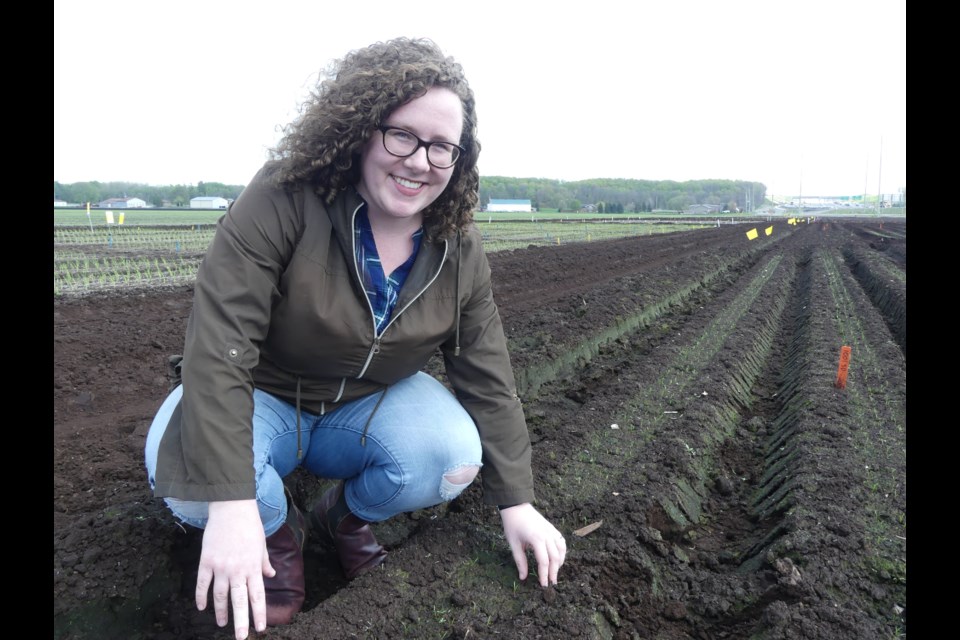A black beetle a little bit longer than the width of your pinky finger is causing havoc in the Holland Marsh, and one University of Guelph research student is trying to solve the problem.
Alexandra Stinson has been using different insecticide treatments on 30-by-20-metre test plots at the Muck Crops Research Station in the marsh, just outside of Bradford West Gwillimbury, to find a sustainable way to deal with agricultural pests.
That little black beetle, known as the carrot weevil, and the carrot rust fly are her prime targets at eradicating from marsh crops.
“They both cause direct economic damage,” Stinson explained. “We eat the carrot root. They actually lay their eggs in the carrot root or next to it (and tunnel their way through).”
That means, she added, that growers cannot sell those vegetables.
“That’s a huge loss to growers if they can’t control (the pests),” she said. “There are not a lot of insecticides that control either of these pests.”
More people started to come up with pest-management techniques 30 to 40 years ago, with many farmers using Imidan insecticide, she said.
“At first it worked very, very well. (Now), weevils are becoming resistant to Imidan,” Stinson said, noting farmers now use Rimon insecticide.
It is her goal to look at alternative insecticides, decrease the weevil’s resistance to them, and improve chemical controls, all while aiming to keep the ecosystem healthy.
Stinson said most growers spray their crops with insecticides at the “true-leaf stage,” when those first sprouts come up after the first two, which resemble bunny ears.
Weevils, she added, used to start showing up at the “fourth true-leaf stage,” meaning when there are four sprouts after the bunny-ear leaves, but now they are showing up earlier.
This will be Stinson’s second full season in the marsh since starting her research in fall 2017, and already she is seeing results.
So far, Stinson said she has found spraying at the second true-leaf stage “can actually reduce a lot of damage at harvest time,” and waiting to plant carrots during the first week of June, compared to the start of May, can yield up to 90 per cent better produce.
This is because weevils lay their eggs but will die off or move on to other areas if there are no carrots for them to eat, she said.
And planting later, she added, also means growers could use less insecticide on their crops.
Stinson will now spend one to two days a week at the research station, managing the plots, weeding, and applying insecticides before she harvests twice — in August and October — to see what damage, if any, there is from the bugs.
Working just a couple fields over from actual Holland Marsh vegetable growers, she said she looks forward to sharing her results with them when she finishes her research in January 2020.
For now, there will be a grower and public outreach day at the Muck Crops Research Station, 1125 Woodchoppers Lane, Kettleby, on July 5 from 10 a.m. to 3 p.m. to showcase all the research that is happening there.
“The research that we do is super beneficial to the growers here,” Stinson said.

